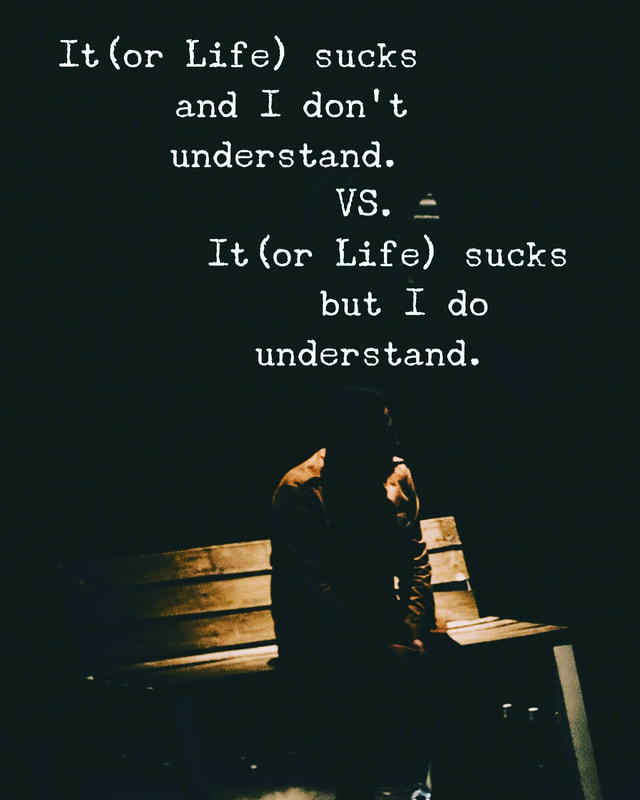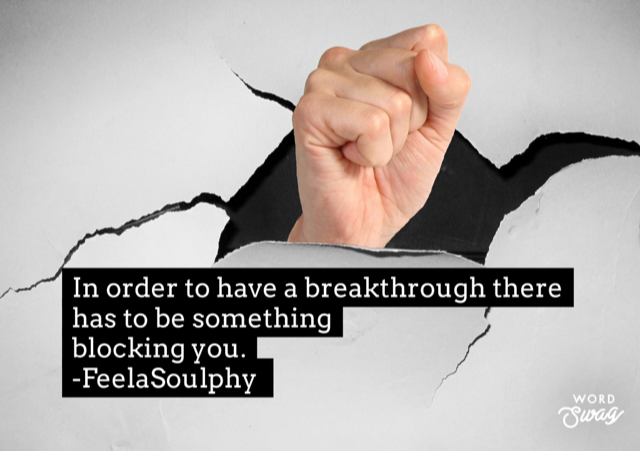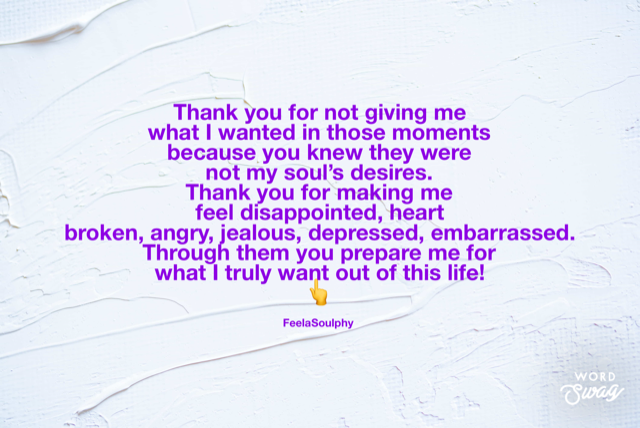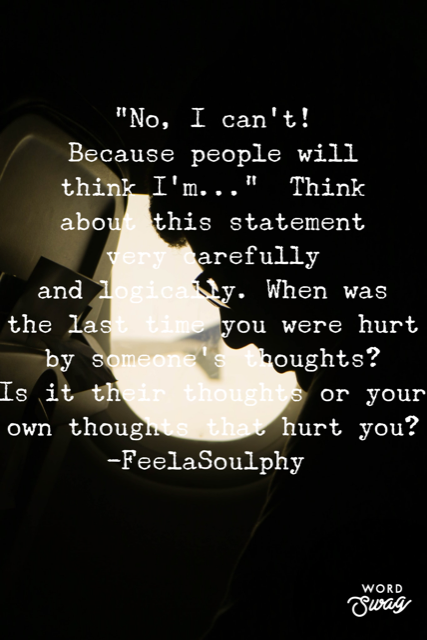|
Society often pushes us to be the best-to reach the top and stay there. But what happens when the title is lost? The truth is, you don’t need to be the best at what you do, as long as you give your best. Being the best is temporary. No one stays at the top forever, and you shouldn’t want to. Progress depends on people surpassing each other. If you attach your identity to being the best, you set yourself up for suffering when the inevitable happens. Look at top athletes-world records never last forever. Someone always comes along and breaks them. If an athlete’s entire identity is built around their record, losing it can feel like losing themselves. The Cost of Being the Best Many high achievers struggle with this reality. Here are two famous examples: 1. Michael Phelps - The most decorated Olympian of all time, yet after the 2012 Olympics, he fell into deep depression. He later admitted he felt lost without swimming, realizing that chasing gold medals had become his entire identity. 2. Tyson Fury - After reaching the pinnacle of boxing by defeating Wladimir Klitschko, he spiraled into depression, alcoholism, and even contemplated suicide. He later shared that his suffering came from having no purpose beyond being “the best”. These examples show that when success is tied to external validation, losing it can be devastating. The Power of Giving Your Best Instead of trying to be the best, focus on trying your best. This shift changes everything:
The irony is that those who always give their best often become their best-but without the fear of losing it. The Journey vs. The Destination Success is often seen as a destination, but in reality, it’s the journey that matters. Being the best is about reaching the top and proving something to the world. Giving your best is about continuous growth and proving something to yourself. The process of discovering your full potential is the real goal. If you only care about being the best, you stop learning once you get there. But if you focus on always giving your best, you never stop evolving. Let Go and Surrender The world encourages us to chase being the best, but it misunderstands the real path to fulfillment. Success isn’t about holding a title-it’s about becoming the best version of yourself through relentless effort. Try your best and let the universe take care of the rest. Success comes and goes, but self-mastery stays with you forever.
0 Comments
“Until you make the unconscious conscious, it will direct your life and you will call it fate.” — Carl Jung "Pain is certain, suffering is optional." - The Buddha “What you are aware of, you are in control of; what you are not aware of is in control of you.” — Anthony De Mello Most people go through life unaware that they are suffering. They accept their struggles, frustrations, and negative emotions as “normal,” believing they are just part of life. But what if I told you suffering isn’t your natural state? What if you could break free, not by avoiding pain but by understanding it? Suffering is a state. Whether it’s a state of mind or being, it’s not permanent. Like any state, it can be changed—but only if you become aware of it first. The truth is, what we are aware of, we can control. What we are not aware of controls us. And for many of us, suffering has silently taken control, shaping our thoughts, actions, and relationships without our knowing it. Common Forms of Hidden Suffering Suffering isn’t always obvious. Sometimes it manifests as anger, jealousy, or self-doubt. Other times, it hides behind habits, expectations, or feelings of inadequacy. Here are some examples of hidden suffering: • Feeling uneasy when others succeed (comparison) • Holding grudges or clinging to the past (attachment) • Constantly worrying about the future (fear) • Struggling with self-worth (insecurity or failure) • Numbing yourself with distractions like alcohol, drugs, or excessive fun (escape) Even subtle feelings, like frustration when stuck in traffic or envy when a friend gets a new car, can point to deeper unresolved suffering. Why Awareness Matters The first step to overcoming suffering is awareness. When you recognize that you are suffering, you naturally start seeking understanding and solutions. In today’s world, there is no shortage of information or resources to help—what’s missing is awareness. Awareness allows you to pause and reflect before reacting. It gives you the power to ask yourself, “Why am I feeling this way? What’s really behind this emotion?” With awareness, you take back control from the invisible forces shaping your life. The Ripple Effect of Suffering Your suffering doesn’t just affect you—it impacts everyone around you. A single moment of anger, fear, or jealousy can ripple out and influence others in ways you may not even realize. When you heal yourself, you also heal the world around you. Imagine how different history might have been if individuals like Hitler had encountered compassion or healing in their formative years. Every action we take, every word we speak, has the potential to either spread suffering or alleviate it. This isn’t about guilt—it’s about responsibility. Once you’re aware of your suffering, you have the opportunity to act consciously and make better choices for yourself and others. Suffering Is a Teacher Suffering is not inherently bad. It becomes destructive only when it is prolonged and unaddressed. From a spiritual perspective, suffering can teach us life’s most valuable lessons—if we are willing to learn. It’s not the pain itself that holds the lesson but how we respond to it. Do we numb it with distractions, or do we face it and seek to understand it? The sooner you acknowledge and learn from your suffering, the sooner you can free yourself from it. A Path Toward Peace Suffering is not your destiny. It’s a state, not a life sentence. The first step toward freedom is awareness. Start noticing your (FEARtw) feelings, emotions, actions, reactions, thoughts, and words. Observe how they influence your decisions and relationships. When you are aware of your suffering, you are already on the path to understanding and healing. You are no longer a slave to unconscious patterns—you are free to create a better life for yourself and those around you. The choice is yours: continue living in a state of suffering, or awaken to the possibility of peace, joy, and love. Awareness is the key that unlocks the door. Remember: Awareness is the beginning of transformation. Judging someone based on their appearance—or even on your experiences with them—rarely captures who they truly are. When we judge, we often see through the lens of our own past and present states, which can color our perception. This is known as projection: we’re using our own experiences and mental state to interpret someone else’s, often without realizing it.
When you judge a person, you’re often judging the outcomes of their experiences, not the person themselves. Who they are is shaped by a lifetime of unique experiences, struggles, and perspectives that we may never fully understand. So, when you judge, are you truly assessing them, or are you reflecting aspects of yourself? Are you judging their experiences, which you know little about, or projecting your own onto them? This issue becomes even more complex when we judge based on someone’s culture or background. Often, we rely on limited information—perhaps what we’ve read, heard, or experienced in a few interactions with certain individuals. But this narrow lens is insufficient to conclude anything substantial about an entire culture or any person within it. Furthermore, our judgments are influenced by our own cultural understanding, which inevitably shapes our biases. Since no two cultures share the same history, judgments based on these fragments are inherently flawed. This flaw becomes especially damaging when we judge entire groups or races based on limited interactions, leading to stereotyping. If understanding an individual requires deep awareness, imagine the impossibility of truly grasping the diversity of an entire race or culture. In addition to being incomplete, judgment also affects the one doing the judging. Even if we never manifest these judgments into actions, they impact us internally. Judgment rarely brings peace, joy, or love; instead, it stirs subtle emotions like irritation, disgust, and annoyance, and can even escalate to feelings of anxiety, fear, anger, or stress. Imagine the state of mind created by constantly judging someone or a group of people. When judgment becomes habitual, it can cloud our inner peace, draining our energy and well-being. Every little judgment we hold also creates a subtle distance between us and others. These small moments of separation accumulate over time, creating a much larger divide until we feel completely separate from the person or group. This is how judgment slowly builds an illusion of separation from the original unity that binds us all. In truth, we are one, interconnected like threads in a single tapestry, inseparable in the flow of energy that sustains us. The separation we feel is an illusion, constructed by our physical eyes and mind. Each judgment reinforces this illusion, eventually forming a belief system that shapes our decisions and interactions. When we forget our unity and buy into this illusion of separation, we disconnect from our true nature and from the peace that comes from remembering we are all part of each other. It starts with small, seemingly harmless judgments. At first, they might feel insignificant, but over time, these judgments can grow, breaking down relationships between lovers, friends, and family. The disconnection can expand into entire communities, countries, and even lead to global conflicts. Wars, whether personal or political, often begin with small arguments or misunderstandings—rooted in judgments that escalate and spiral out of control. This is the power of judgment: what begins as a small seed of separation can eventually cause massive division and harm. In this way, judgments are fleeting and subjective snapshots—rarely capturing the whole truth of a person or a group. To judge fairly would require fully understanding their experiences, which is nearly impossible. So perhaps the best approach is to hold judgment lightly, with an open mind and heart, remembering the unity that binds us all. Seeking approval can be a powerful motivator, driving you to achieve higher and larger goals than you might without it. This behavior aligns with the need for external validation, where your sense of self-worth becomes tied to others’ opinions. However, this same force can also become a never-ending source of suffering, much like being on a hedonic treadmill. No matter how much success you achieve, the feeling of accomplishment is short-lived, and you’re left continually seeking more approval. As a result, you may never feel truly accomplished, even when you’ve achieved significant success. You may not even realize that you're seeking approval, as this behavior can be buried deep in your subconscious. Here are some signs to help you recognize it, along with actionable steps to overcome these tendencies: 1. You get upset when someone challenges your ideas. Why this happens: When your sense of worth is tied to approval, disagreements feel like personal attacks rather than opportunities to learn. Solution: Shift your mindset from seeking validation to seeking growth. Embrace challenges as a way to expand your understanding and consider others' perspectives. 2. You feel a rush of happiness when someone agrees with you, and you want to feel it again. Why this happens: This is a form of external validation where your happiness relies on others’ approval. Solution: Practice self-validation. Ask yourself, “Do I believe in my idea or action regardless of others’ approval?” Develop the habit of internally affirming your decisions based on your values. 3. You often feel superior to others or thrive in competitive environments. Why this happens: Competition can be a way to seek validation by proving you're better than others. Solution: Focus on collaboration instead of competition. Aim to grow alongside others rather than surpassing them. Shift from ego-driven goals to community-oriented objectives. 4. You're addicted to the feeling of success and need to keep achieving more. Why this happens: Achieving success can create a "high," but when that fades, you may feel empty and seek another achievement to fill the void. Solution: Reframe success as an ongoing journey rather than a destination. Practice mindfulness and celebrate your small wins along the way. Develop a sense of contentment with where you are in the present moment. 5. You love recognition and crave being noticed or acknowledged for your efforts. Why this happens: The need for recognition can stem from a lack of internal self-worth. Solution: Cultivate self-recognition. Journaling can help—write down your accomplishments daily and appreciate them, even if no one else does. Practice recognizing your value independent of external praise. 6. You love to argue or prove your point. Why this happens: Constantly defending your ideas can be a way of seeking validation for your beliefs. Solution: Learn to detach your self-worth from being right. Instead of seeking to win arguments, focus on healthy dialogues where both parties can learn and grow. 7. You enjoy seeing others fail or feel envious of their success. Why this happens: When success is tied to external validation, others' achievements can feel like a threat to your own self-worth. Solution: Practice genuine happiness for others' success. This helps shift your mindset from scarcity to abundance, reminding you that there's enough success for everyone. 8. You crave attention or seek validation from others. Why this happens: The desire for attention often comes from an internal void that hasn’t been filled with self-love. Solution: Develop self-compassion and practice being alone without needing external distractions or validation. Meditation and mindfulness can help strengthen your internal sense of worth. 9. You find yourself people-pleasing, sacrificing your own needs to win approval. Why this happens: People-pleasing is a classic form of seeking approval, as it focuses on making others happy at your own expense. Solution: Set boundaries and practice saying no. Realize that your worth isn’t dependent on how much you do for others, but on being true to yourself. 10. You love hearing compliments and constantly seek external praise. Why this happens: Compliments can feel validating, but relying on them can create dependency. Solution: Instead of seeking external praise, learn to give yourself compliments. Practice affirmations and build a positive internal dialogue to reinforce your self-esteem. 11. You struggle to let go of past failures, fearing judgment. Why this happens: Fear of judgment ties your self-worth to your past mistakes. Solution: Embrace failure as a learning experience. Everyone makes mistakes—what matters is how you grow from them. Develop resilience by practicing self-forgiveness. 12. You try too hard to persuade others to believe what you believe. Why this happens: Needing others to agree with you stems from a fear of being wrong or misunderstood. Solution: Accept that not everyone will share your beliefs, and that’s okay. Let go of the need to convince others, focusing instead on having open, respectful discussions. 13. You have an insistent need to be right all the time. Why this happens: Being right can feel like a way to affirm your intelligence or competence. Solution: Practice intellectual humility. Recognize that learning from others, and being open to new ideas, is more valuable than always being right. 14. You frequently complain or seek sympathy from others. Why this happens: Seeking sympathy can be a way of attracting attention and approval from others. Solution: Shift from complaining to problem-solving. Take ownership of your challenges and focus on solutions rather than seeking sympathy. 15. Others' opinions and judgments have a strong impact on your emotions and self-worth. Why this happens: When your self-esteem is based on others' opinions, you become vulnerable to external judgments. Solution: Practice detaching from others’ opinions. Ask yourself, “What do 'I' think?” and work on building a strong internal sense of self that isn’t swayed by external views. 16. You take credit for other people’s work to gain approval. Why this happens: This behavior arises from a desire to appear more competent or accomplished than you feel. Solution: Acknowledge the contributions of others openly and practice gratitude. Recognize that collaboration can be more rewarding than personal accolades. Overcoming approval-seeking behavior is a journey that requires patience and self-awareness. By recognizing these signs and adopting healthier practices, you can shift from relying on external validation to fostering inner confidence and peace. Imagine how liberating and peaceful it would feel to let go of the burden of seeking approval in your life. Cultivating self-esteem from within empowers you to live authentically and freely, without the constant pressure to seek validation from others. Navigating life's challenges involves a crucial distinction: facing adversity with or without understanding. Many find themselves in tough situations, blaming external factors and evading responsibility—a cycle that hinders growth. On the contrary, those who acknowledge the origin of their struggles, recognizing their role in the mistakes, and taking full responsibility, set the stage for genuine learning. By feeling the pain today and comprehending the lessons from the past to the present, one gains the motivation to improve and avoids recurring hardships. Understanding your situation is key; it's the gateway to growth, easing life's journey and minimizing future suffering. - Feelasoulphy A friend of mine told me a story the other day. His dear friend had gotten terminal cancer and passed away. One important lesson she taught my friend was that for the entire time she had the illness she did not suffer mentally. She was able to keep her spirit high. The secret was, instead of continuing to ask the question of “Why me?” she accepted the “what is” and answered with “Why not me?”. Although they both seem to be questions there are significant differences in the two where I have demonstrated here. In the last three years of her life, she was able to enjoy every moment of it and it was probably the best three years of her entire life. I always believe there’s a reason for everything. The fact that my friend told me about the story and now that I’m sharing it with you is because she left an important lesson for all of us to learn, especially the ones that are reading this post. I’m grateful for her valuable contribution and legacy to the world. Why Me vs. Why Not Me “Why Me” is a forever unanswered question that brings us endless suffering. “Why Not Me” is a simple answer to many of our complicated questions that leads us to clarity and the relief of misery. “Why Me” represents the unknown which often involves fear. “Why Not Me” is absolute certainty that only gives you sheer confidence. “Why Me” is persistence which will be met with continued resistance. “Why Not Me” is total acceptance accompanied by faith that results in seamless flow. “Why Me” is not only selfish but also cowardly because we wish it happened to someone else other than us. “Why Not Me” is selfless and brave that fully engages the challenges head on and bears all responsibilities. Therefore, “Why Me” is the source of suffering whereas “Why Not Me” is the source of peace and joy. - Feelasoulphy If you are truly heart broken, I congratulate you that you have finally arrived at the deepest part of your heart all the way from...your head... A wise friend once told me that our life journey is merely the distance from our head to our heart, a whopping 16 inch long! I believe that we spend our entire life traveling back and forth between our head and our heart. We have all been to the heart but it took some of us a traumatic event to go straight to the heart instantly which is a blessing in the sky. When we hit rock bottom and broke down that’s when we can no longer live with all the lies we have been telling ourselves and we finally arrived at the heart. This is a place without ego and only truth exists. When we cry, we cry out of our heart and not our head because we feel it directly from the heart. Sadness is bad if we only focus on the negative emotions that it brings to us. When we turn sadness into compassion we are then acting upon the power of love. Next time when you feel the pain in your heart again remember that you have arrived at the heart and a positive change in your life is in the making. Take this precious opportunity to reflect on things and see what you can do now to improve your life! It’ll always be your choice to stay here or return to your head. - FeelaSoulphy Thank you for not giving me what I wanted in those moments because you knew they were not my soul’s desires. Thank you for making me feel disappointed, heart broken, angry, jealous, depressed, embarrassed. Through them you prepare me for what I truly want out of this life! - FeelaSoulphy “No, I can’t! Because people will think I’m...” Think about this statement very carefully and logically. When was the last time you were hurt by someone’s thoughts? Is it their thoughts or your own thoughts that hurt you? - FeelaSoulphy |
AuthorFeelasoulphy Categories
All
Archives
December 2024
|















 RSS Feed
RSS Feed